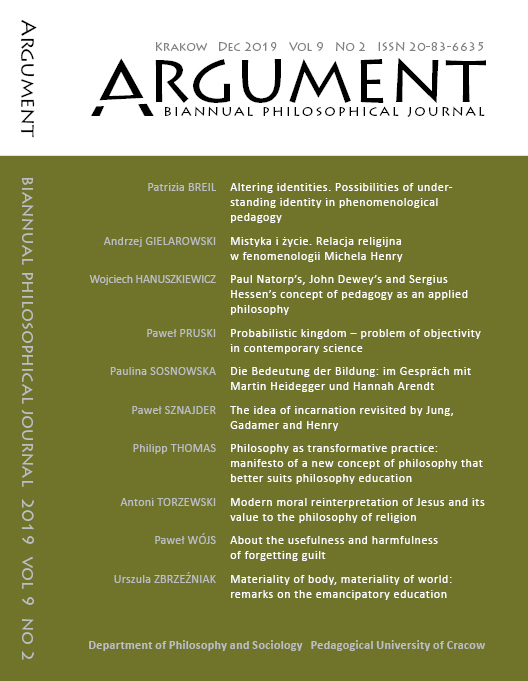Altering identities. Possibilities of understanding identity in phenomenological pedagogy
DOI:
https://doi.org/10.24917/20841043.9.2.3Keywords:
phenomenological pedagogy, phenomenology, Jean-Paul Sartre, Simone de Beauvoir, Bernhard Waldenfels, Wilfried Lippitz, responsivity, alterity, education, identityAbstract
In one way or another, the other plays an important role in educational settings. Over the last few decades, the recourse to philosophical phenomenology has proved to be helpful for the discussion of this topic. Coming from this thematic direction, this article focuses on the other in its constitutive function for the construction of identity. Both within the phenomenologist Bernhard Waldenfels’ theory of responsivity as well as in the pedagogue Wilfried Lippitz’ theory of alterity, the other is a structural part of the self. It will be shown that within these theories the possible dangers of an encounter with the other cannot be addressed in an adequate way. However, this is especially important in educational contexts. Therefore, with regard to the philosophies of Jean‐Paul Sartre and Simone de Beauvoir, I would like to present two additional phenomenological approaches from which the pedagogical discussion can benefit. Both Sartre and Beauvoir put great focus on possible obstacles regarding the en‐ counter with the other. Whereas Sartre identifies negativity as an essential part of human existence, Beauvoir enriches these thoughts with an ethical component. Against the background of these philosophies, the other comes into view as a possible source of both objectification and empowerment. Lastly, the article shows that an implementation of these considerations in teacher training can lead to a deeper understanding of the constitution of identity and the inherent possibilities of any interaction with the other.


